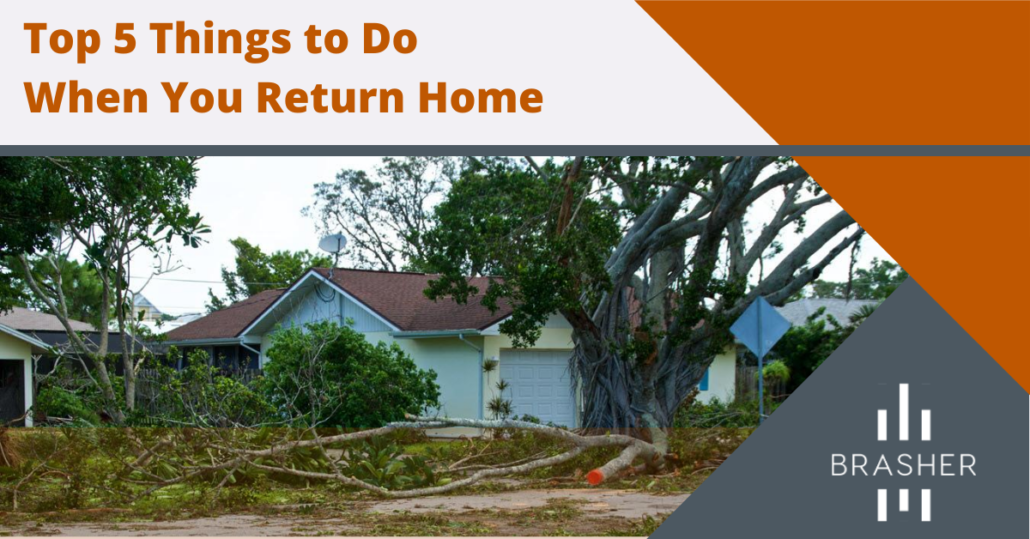- Be extra CAUTIOUS of hidden dangers from downed power lines, snakes, broken glass, Covid-19 exposure, etc. Be aware of and follow orders from your county or parish.
- INSPECT your property and look for:
- Missing shingles (look at the roof and in the yard)
- Missing metal, flashing, gutters, facia, soffit
- Exposed decking on roof. If roof decking is visible, water intrusion in your home has occurred.
- Yard debris
- Interior water damage. Look for stains, bubbled paint, swollen wood and sheetrock, separated trim, etc., as well as doors that are difficult to open and close.
- DOCUMENT everything
- Take plenty of photos and videos of any damage. Your phone is a great tool here.
- Make a list of damaged personal property.
- DO NOT EXPECT the insurance company to do the job of documenting damage, even though it is one of their responsibilities. Take it upon yourself to thoroughly preserve your evidence.
- DO NOT THROW AWAY damaged property, even things that are obviously headed for the trash heap like torn shingles, flooring, carpet etc. Even if the adjuster tells you to throw it out, wait until the inspection so you can show the damaged property. Of course, photograph/video everything.
- Keep track of YOUR LIVING EXPENSES in the days, weeks or months following a disaster to record any abnormal or excessive costs—such as hotels, food, or gas.
- Give NOTICE of your claim
- Be polite and give a description of the damage
- Don’t argue with the insurance company — even if you disagree with them; be polite but firm in your requests.
- Avoid using profanity or being rude or sarcastic as they will note it all in your claim file.
- PROTECT YOUR PROPERTY from further damage.
- Use tarps or roofing material to prevent further water damage.
- Secure your property.
- Call us if you need help finding someone to provide these services.
We are here to help. You don’t need us now, but you may in the future. We wish you all a speedy recovery!


